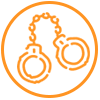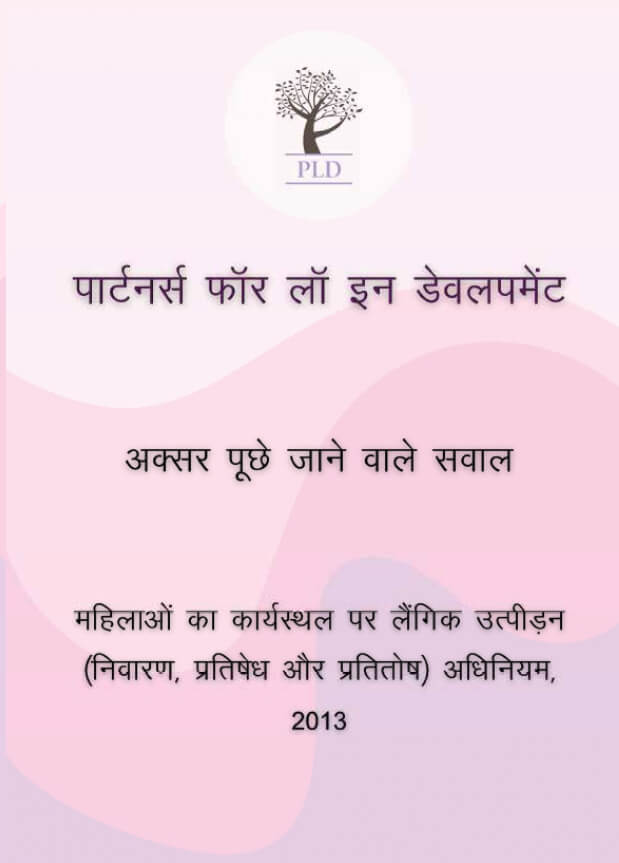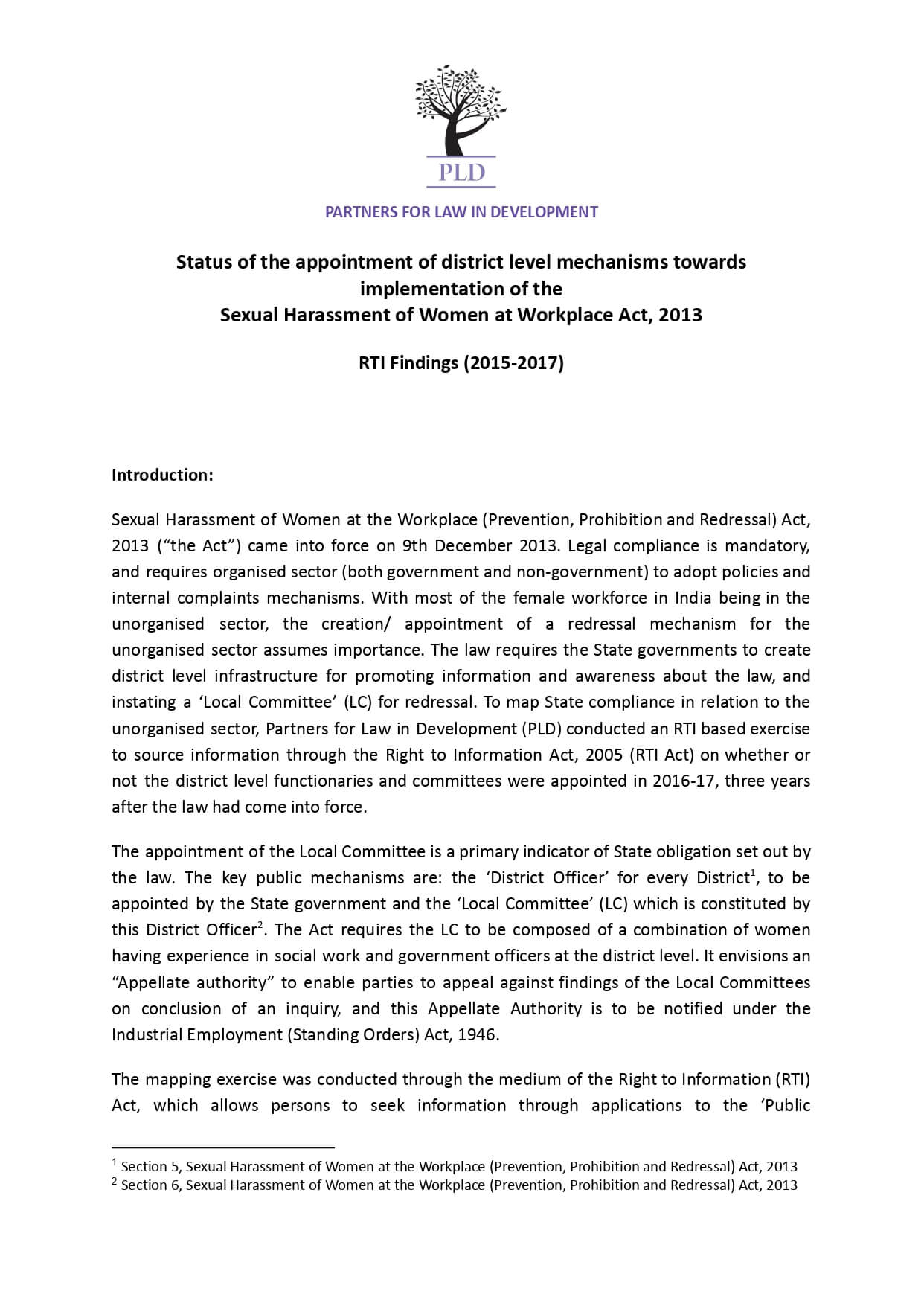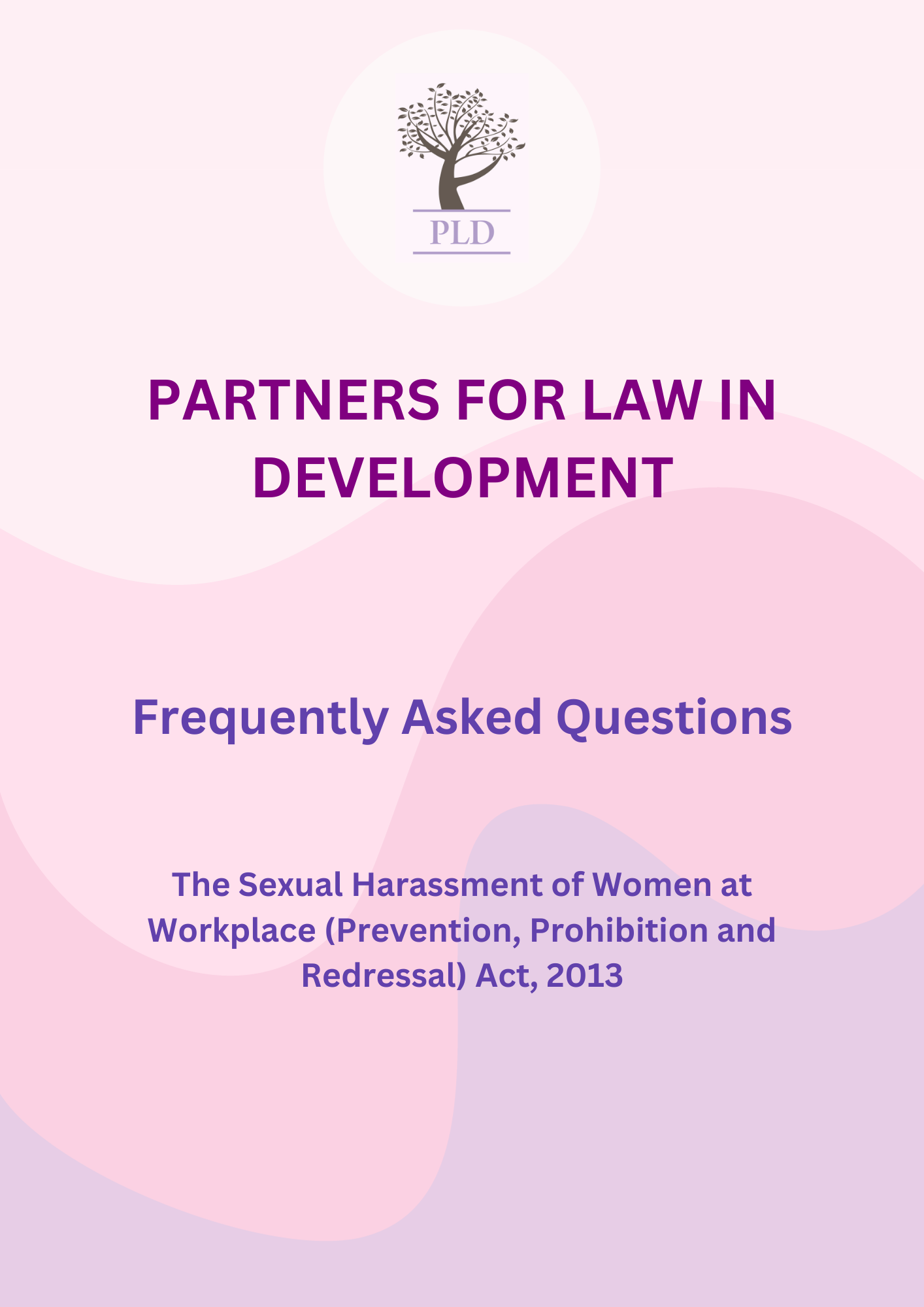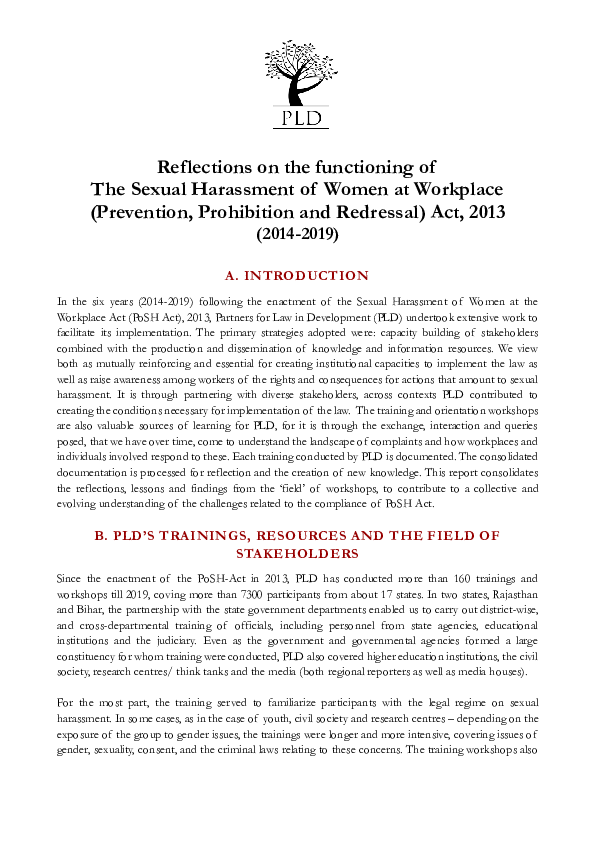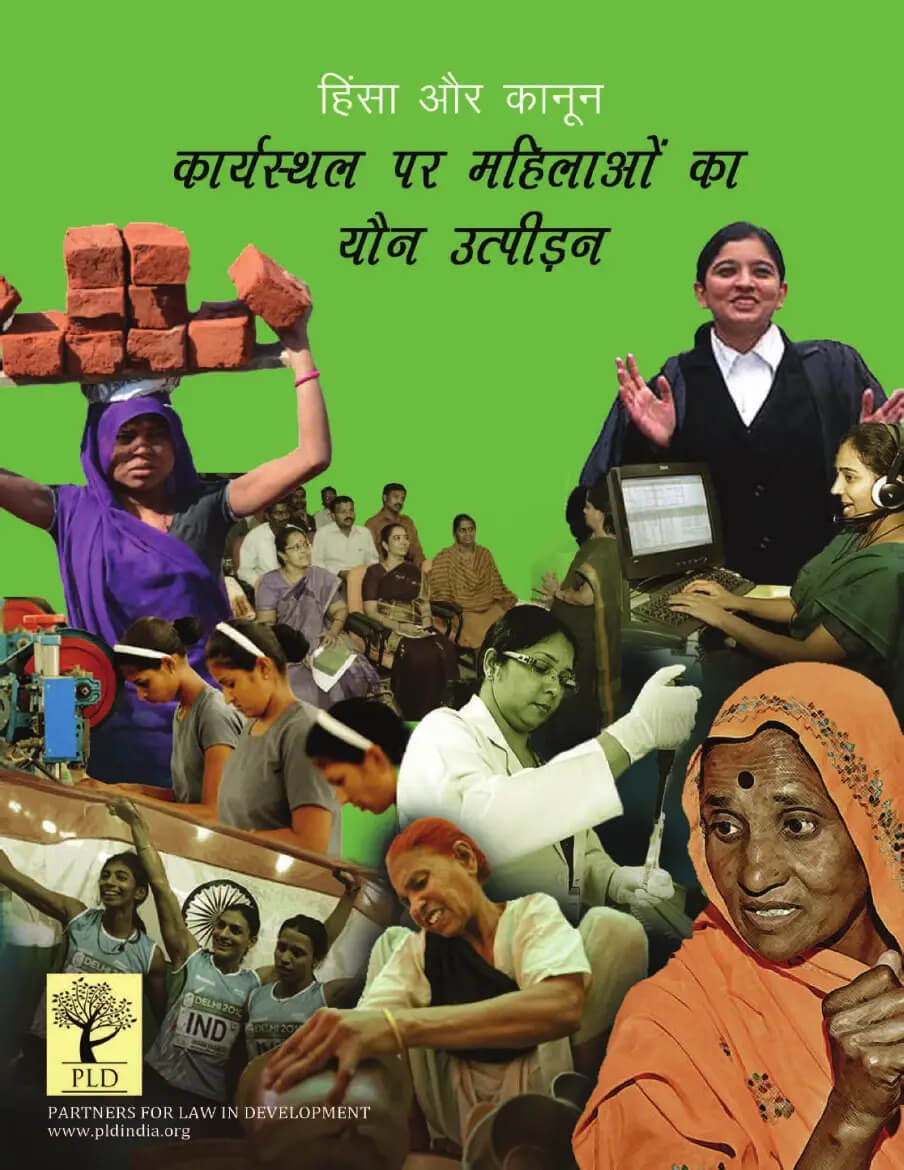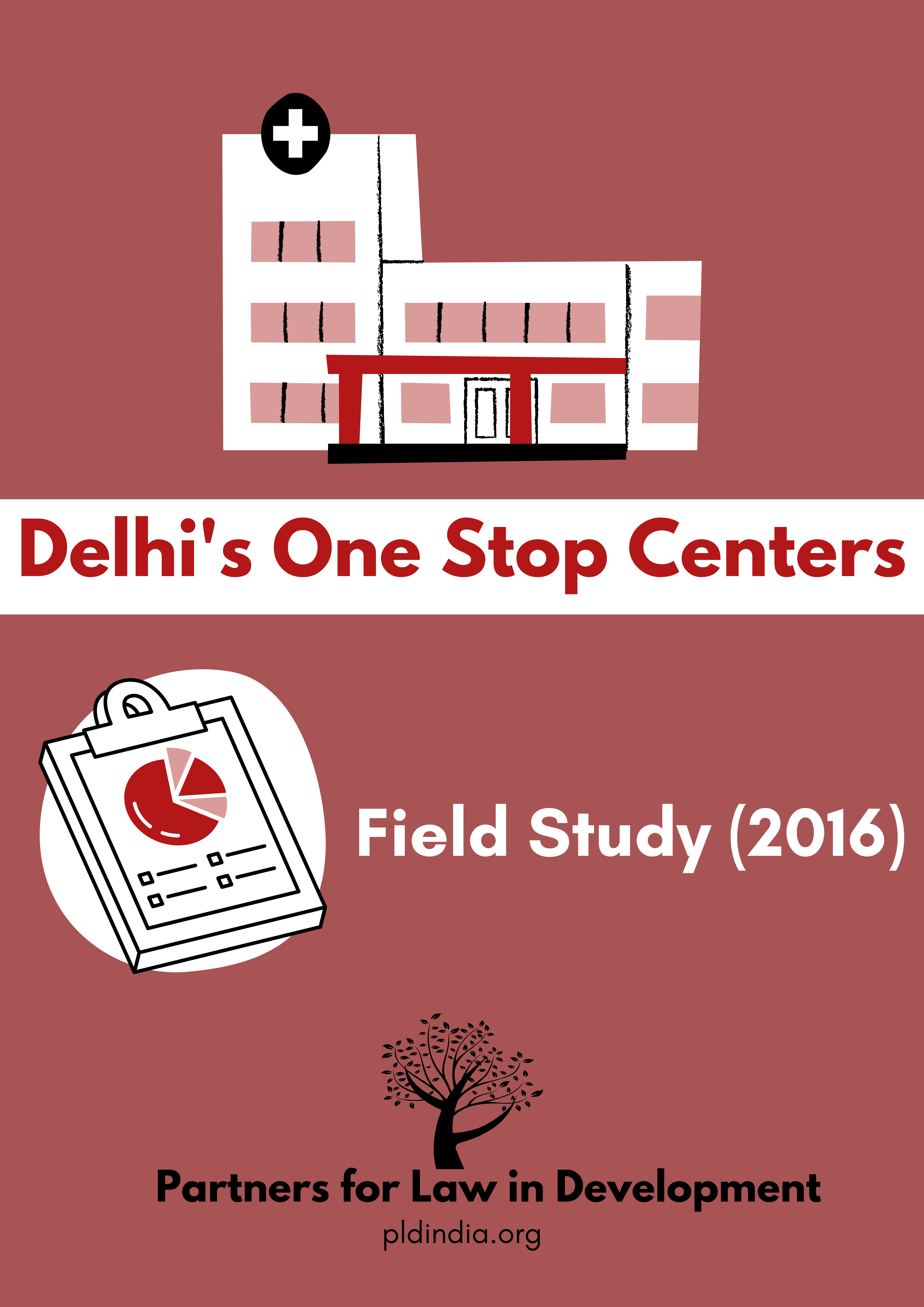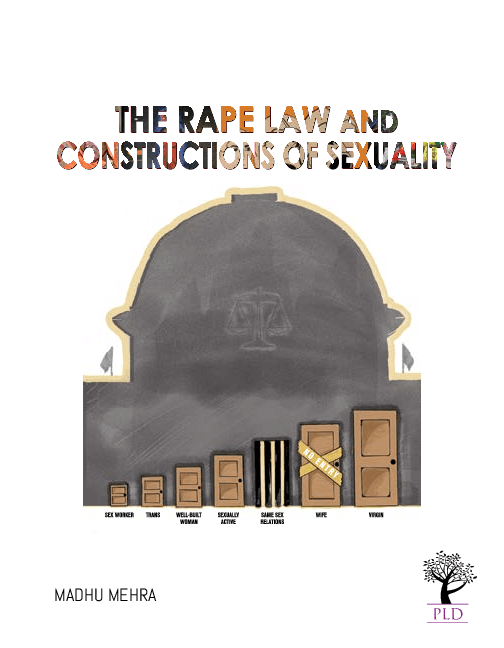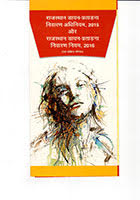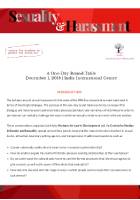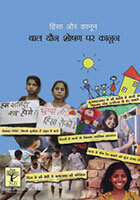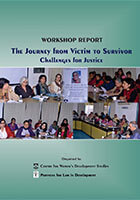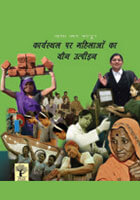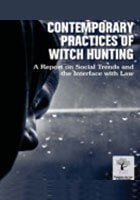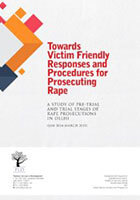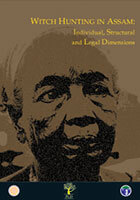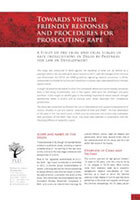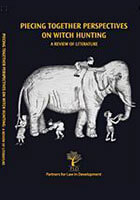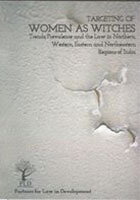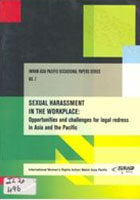Publications
Violence Against Women
Reflections on the functioning of The Sexual Harassment of Women at Workplace(Prevention, Prohibition and Redressal) Act, 2013 (2014-2019)
For the last five years, Partners for Law in Development (PLD) has been engaging with the Sexual Harassment of Women at Workplace Act (PoSH-Act) through extensive capacity building with both government and private institutions. This was achieved through training sessions and workshops as well as the distribution of information materials such as posters and brochures. Through this, PLD has accumulated five years’ worth of documentation through which they now reflect on the law and its implementation.
For the last five years, Partners for Law in Development (PLD) has been engaging with the Sexual Harassment of Women at Workplace Act (PoSH-Act) through extensive capacity building with both government and private institutions. This was achieved through training sessions and workshops as well as the distribution of information materials such as posters and brochures. Through this, PLD has accumulated five years’ worth of documentation through which they now reflect on the law and its implementation.
Booklet on Sexual Harassment of Women at Workplace (Hindi) (2023)
The book ‘Karyasthal Par Mahilaon Ka Yaun Utpeedan’ is a comprehensive guide on The Sexual Harassment of Women at Workplace (Prevention, Prohibition and Redressal) Act, 2013. Written in simple language, it is accessible to grassroots workers, committee members, and lawyers alike, and enables the implementation of the Act in a gender-just manner. The guide explains the provisions of the legislation, and also administrative and civil procedures not spelled out in the Act, but necessary to conduct inquiries as per the rules of natural justice. As it enters its 2023 edition, the guide continues to offer actionable insights for a workplace environment defined by respect and justice.
The book ‘Karyasthal Par Mahilaon Ka Yaun Utpeedan’ is a comprehensive guide on The Sexual Harassment of Women at Workplace (Prevention, Prohibition and Redressal) Act, 2013. Written in simple language, it is accessible to grassroots workers, committee members, and lawyers alike, and enables the implementation of the Act in a gender-just manner. The guide explains the provisions of the legislation, and also administrative and civil procedures not spelled out in the Act, but necessary to conduct inquiries as per the rules of natural justice. As it enters its 2023 edition, the guide continues to offer actionable insights for a workplace environment defined by respect and justice.
Delhi’s One Stop Centers: Field Study (2016)
This report offers an assessment of the effectiveness and impact of the One Stop Crisis Centres (OSCs) established across seven hospitals in Delhi. Partners for Law in Development (PLD) conducted extensive site visits and interviews in August and September 2016 to assess various facets of the One Stop Centers in Delhi. The centers evaluated included AIIMS, Ambedkar Hospital, Deen Dayal Upadhyay Hospital, Guru Teg Bahadur Hospital, Lok Nayak Hospital, Safdarjung Hospital, and Sanjay Gandhi Hospital. These OSCs are a vital response to the pervasive issue of Violence against Women (VAW), aiming to provide comprehensive support to victims by integrating legal, medical, and psychological assistance. The evaluation, conducted by Partners for Law in Development (PLD), examines the accessibility, services, and alignment of these centers with their original vision.
This report offers an assessment of the effectiveness and impact of the One Stop Crisis Centres (OSCs) established across seven hospitals in Delhi. Partners for Law in Development (PLD) conducted extensive site visits and interviews in August and September 2016 to assess various facets of the One Stop Centers in Delhi. The centers evaluated included AIIMS, Ambedkar Hospital, Deen Dayal Upadhyay Hospital, Guru Teg Bahadur Hospital, Lok Nayak Hospital, Safdarjung Hospital, and Sanjay Gandhi Hospital. These OSCs are a vital response to the pervasive issue of Violence against Women (VAW), aiming to provide comprehensive support to victims by integrating legal, medical, and psychological assistance. The evaluation, conducted by Partners for Law in Development (PLD), examines the accessibility, services, and alignment of these centers with their original vision.
The Rape Law and Constructions of Sexuality (2018)
This resource book explores the role of law in regulating female sexuality, by contextualizing the rape law within the broader socio-cultural understanding of gender and caste as sites of power and privilege. Written in simple language, it is intended to make accessible a critical understanding of sexuality as a site of power, state control, and political struggle for those sections of activists and change agents who have little or no access to such resources on the law. This resource book is designed to complement PLD’s trainings, while also being a stand-alone reading for students and social workers alike. It may also be of interest to those curious about feminist critiques of sexuality and the law.
This resource book explores the role of law in regulating female sexuality, by contextualizing the rape law within the broader socio-cultural understanding of gender and caste as sites of power and privilege. Written in simple language, it is intended to make accessible a critical understanding of sexuality as a site of power, state control, and political struggle for those sections of activists and change agents who have little or no access to such resources on the law. This resource book is designed to complement PLD’s trainings, while also being a stand-alone reading for students and social workers alike. It may also be of interest to those curious about feminist critiques of sexuality and the law.
Legal explainer on the Rajasthan Witch Hunting Act 2015, and Rules 2016 (Hindi)
Prepared by PLD for the Rajasthan Department of Women and Child Development (WCD is a summary for enabling the frontline workers, lawyers and the police in implementing the state law. It was released by the WCD during an inaugural event in Jaipur, on 5th July 2016.
Prepared by PLD for the Rajasthan Department of Women and Child Development (WCD is a summary for enabling the frontline workers, lawyers and the police in implementing the state law. It was released by the WCD during an inaugural event in Jaipur, on 5th July 2016.
Roundtable on Sexuality and Harassment (2018)
Partners for Law in Development, in partnership with Centre for Studies in Gender and Sexuality, Ashoka University, organised a Roundtable on Sexuality and Harassment to engage with the issue of sexual harassment by interrogating the complexities of our discourse around sexuality. These conversations, spread across three panels of Psyche, Agency and Law, looked at the many dimensions involved in sexual desire, attraction, boundary setting, agency, and transgression with a wide audience of students, academic researchers, legal experts, psychoanalysts and mental health practitioners.
Partners for Law in Development, in partnership with Centre for Studies in Gender and Sexuality, Ashoka University, organised a Roundtable on Sexuality and Harassment to engage with the issue of sexual harassment by interrogating the complexities of our discourse around sexuality. These conversations, spread across three panels of Psyche, Agency and Law, looked at the many dimensions involved in sexual desire, attraction, boundary setting, agency, and transgression with a wide audience of students, academic researchers, legal experts, psychoanalysts and mental health practitioners.
Booklet on Protection of Children against Sexual Offences Act (POCSO) (2018)
The resource book in Hindi on Protection of Children from Sexual Offences Act (POSCO), 2012 titled ‘Bal Yaun Soshan par Kanoon’ was published in 2016. The comprehensive, context specific book discusses the law, its background, objectives and scope, as well as its core concepts; it details the offences, procedures and special mechanisms constituted to implement the law, incorporating relevant provisions from the Juvenile Justice Act, Criminal Procedure Code and the National Commission for Protection of Child Rights Act, in addition to the main law, POCSO.
The resource book in Hindi on Protection of Children from Sexual Offences Act (POSCO), 2012 titled ‘Bal Yaun Soshan par Kanoon’ was published in 2016. The comprehensive, context specific book discusses the law, its background, objectives and scope, as well as its core concepts; it details the offences, procedures and special mechanisms constituted to implement the law, incorporating relevant provisions from the Juvenile Justice Act, Criminal Procedure Code and the National Commission for Protection of Child Rights Act, in addition to the main law, POCSO.
Workshop Report: The Journey From victim to Survivor, Challenges for Justice (2016)
This report has come out of our national workshop on “The Journey from Victim to Survivor: Challenges for Justice”, organized jointly by CWDS and PLD in February 2016 in memory of Professor Lotika Sarkar. With participation of women’s rights, child-rights, disability rights, minority rights, Dalit rights, queer rights activists and counsellors amongst others, the workshop sought to understand justice in terms of recovery and healing of victims of violence. Victim-centric interventions like compensation, comprehensive crisis support, shelter-homes and counselling were some themes discussed. The report captures the presentations and discussions on each of the themes.
This report has come out of our national workshop on “The Journey from Victim to Survivor: Challenges for Justice”, organized jointly by CWDS and PLD in February 2016 in memory of Professor Lotika Sarkar. With participation of women’s rights, child-rights, disability rights, minority rights, Dalit rights, queer rights activists and counsellors amongst others, the workshop sought to understand justice in terms of recovery and healing of victims of violence. Victim-centric interventions like compensation, comprehensive crisis support, shelter-homes and counselling were some themes discussed. The report captures the presentations and discussions on each of the themes.
Booklet on Sexual Harassment of Women at Workplace (Available in Hindi and Telugu) (2016)
The book ‘Karyasthal Par Mahilaon Ka Yaun Utpeedan’ is a comprehensive guide on The Sexual Harassment of Women at Workplace (Prevention, Prohibition and Redressal) Act, 2013. Written in simple language, it is accessible to grassroots workers, committee members and lawyers alike, and enables implementation of the Act in a gender-just manner. The guide explains the provisions of the legislation, and also administrative and civil procedures not spelt out in the Act, but necessary to conduct inquiries as per the rules of natural justice. The book was published in Hindi in 2016 and in Telugu in 2017 .
The book ‘Karyasthal Par Mahilaon Ka Yaun Utpeedan’ is a comprehensive guide on The Sexual Harassment of Women at Workplace (Prevention, Prohibition and Redressal) Act, 2013. Written in simple language, it is accessible to grassroots workers, committee members and lawyers alike, and enables implementation of the Act in a gender-just manner. The guide explains the provisions of the legislation, and also administrative and civil procedures not spelt out in the Act, but necessary to conduct inquiries as per the rules of natural justice. The book was published in Hindi in 2016 and in Telugu in 2017 .
Contemporary Practices of Witch Hunting: A Report on Social Trends and the Interface with Law (2015)
This socio legal study, the first of its kind in India, provides evidence of contemporary social trends of witch hunting, and the interface of witch hunting related victimization with law. It draws upon a variety of sources: case studies from select blocks in the districts; police records collected from Jamui, Bilaspur , Gumla and Ranchi for the years 2010 to 2012; and High Court and Supreme Court judgments from ten states.The study thus offers an evidence based critique of current trends in law and policy making in response to incidences of witch-hunting.
This socio legal study, the first of its kind in India, provides evidence of contemporary social trends of witch hunting, and the interface of witch hunting related victimization with law. It draws upon a variety of sources: case studies from select blocks in the districts; police records collected from Jamui, Bilaspur , Gumla and Ranchi for the years 2010 to 2012; and High Court and Supreme Court judgments from ten states.The study thus offers an evidence based critique of current trends in law and policy making in response to incidences of witch-hunting.
A Study of Pre-Trial and Trial Stages of Rape Prosecution in Delhi (2014-2015)
A report of a by PLD to monitor compliance with gender sensitive procedures in rape prosecutions. Conducted under the aegis of Department of Justice and the UNDP, the report draws upon trial monitoring of 16 cases of rape across 4 fast-track courts in Delhi, victim interviews, examination of case records and comparative and domestic law research. It concludes with recommendations that seek to strengthen victim centric measures to support women prosecuting rape.
A report of a by PLD to monitor compliance with gender sensitive procedures in rape prosecutions. Conducted under the aegis of Department of Justice and the UNDP, the report draws upon trial monitoring of 16 cases of rape across 4 fast-track courts in Delhi, victim interviews, examination of case records and comparative and domestic law research. It concludes with recommendations that seek to strengthen victim centric measures to support women prosecuting rape.
Witch Hunting in Assam: Individual, Structural and Legal Dimensions (2014)
The report based on a study undertaken collaboratively by the three organizations, draws its findings from police reports and 16 case studies of victims from Goalpara and Sonitpur districts of Assam. Using ethnographic data, the report highlights the continuum of violations connected with witch hunting, also bringing into focus structural causes that make it possible to rationalize conflicts and losses through witch hunting; It points towards gaps in law and justice in police inaction and lack of preventive and reparative measures that enable a continuum of violations.
The report based on a study undertaken collaboratively by the three organizations, draws its findings from police reports and 16 case studies of victims from Goalpara and Sonitpur districts of Assam. Using ethnographic data, the report highlights the continuum of violations connected with witch hunting, also bringing into focus structural causes that make it possible to rationalize conflicts and losses through witch hunting; It points towards gaps in law and justice in police inaction and lack of preventive and reparative measures that enable a continuum of violations.
Summary Findings of PLD’s Study on Rape Trials in Delhi (2013)
A four page summary document of PLD’s report on Rape Trials in Delhi.
A four page summary document of PLD’s report on Rape Trials in Delhi.
Piecing Together Perspectives on Witch Hunting: A Review of Literature (2013)
From the European witch-craze in the 16th century to modern day African witchcraft beliefs and contemporary cases of violent witch-hunting in India, history has been witness to witch-hunting across time and place. Why have witch-hunts taken place in the past? What makes them endure to the present? How are witchcraft beliefs different from place to place? What is the role of gender in witch-hunting? This review of diverse materials including scholarly articles and NGO reports tries to answer these questions and more from a feminist perspective, and attempts to piece together varied understandings on witch-hunting so as to find ways forward in which to respond to ongoing attacks on women in the name of witch-hunting.
From the European witch-craze in the 16th century to modern day African witchcraft beliefs and contemporary cases of violent witch-hunting in India, history has been witness to witch-hunting across time and place. Why have witch-hunts taken place in the past? What makes them endure to the present? How are witchcraft beliefs different from place to place? What is the role of gender in witch-hunting? This review of diverse materials including scholarly articles and NGO reports tries to answer these questions and more from a feminist perspective, and attempts to piece together varied understandings on witch-hunting so as to find ways forward in which to respond to ongoing attacks on women in the name of witch-hunting.
Targeting of Women as Witches: Trends, Prevalence and the Law in Northern, Western, Eastern, and Northeastern Regions of India (2012)
The report is an outcome of 3 consultations held in Northern, Eastern, Western and Northeastern regions of India by PLD in partnership with state organisations, with the support of the NCW. The report maps the trends of violations inflicted on women in the name of witch hunting, its repercussions, and the role of the state and the law. The report also offers recommendations that are instrumental to advance justice to the survivors of witch-hunting.
The report is an outcome of 3 consultations held in Northern, Eastern, Western and Northeastern regions of India by PLD in partnership with state organisations, with the support of the NCW. The report maps the trends of violations inflicted on women in the name of witch hunting, its repercussions, and the role of the state and the law. The report also offers recommendations that are instrumental to advance justice to the survivors of witch-hunting.
IWRAW Asia Pacific Occasional Papers Series No. 7 (2005): Sexual Harassment in the Workplace
This is a International Women’s Rights Action Watch, Asia Pacific publication, to which PLD contributed.
This is a International Women’s Rights Action Watch, Asia Pacific publication, to which PLD contributed.


